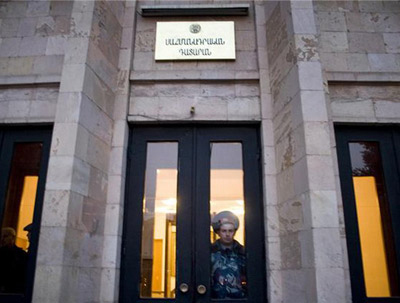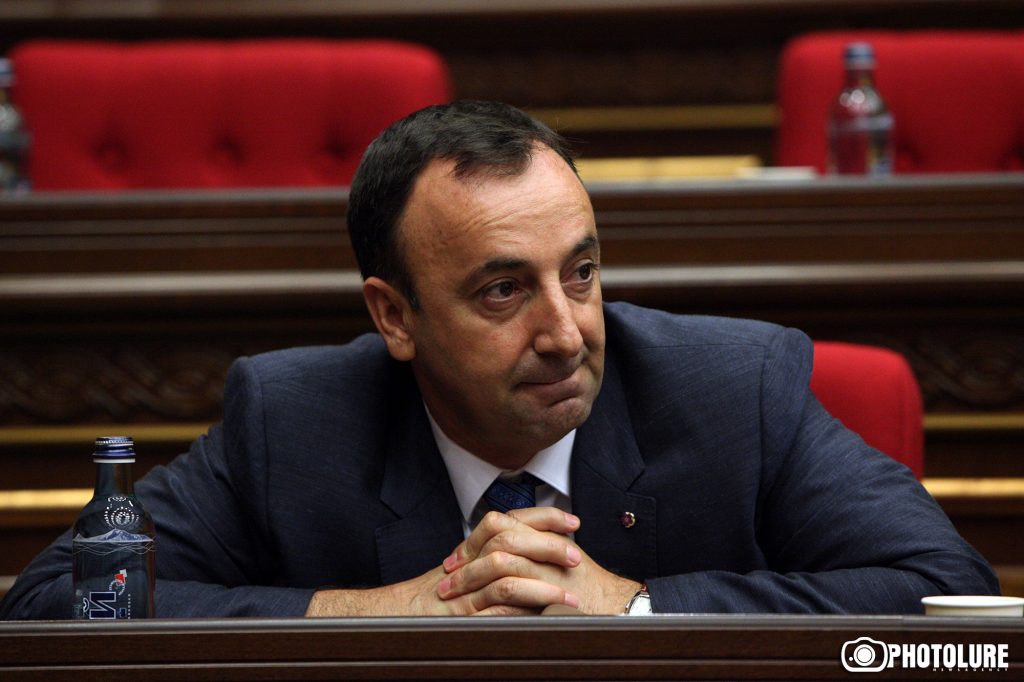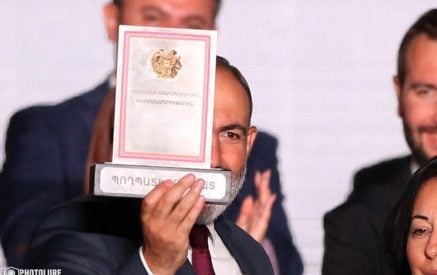The estimates of the CU International expert
After the adoption of the new Constitution, RA citizens have no more right to defend their social, economic and cultural rights at the Constitutional Court by the Basic Law. By the approval of RA President Serzh Sargsyan, Article 169 of the new Constitution suggested for the referendum on December 6, defines, “Citizen may appeal to the Constitutional exclusively in the case of violations of main rights and freedoms enshrined by Chapter 2 of the Constitution.” Under the new Constitution, citizens henceforth shall be deprived of the protection of the constitutional norm on culture. For example, the fight in protection of the Covered Market and Afrikyans’ house.
In an interview with “Aravot”, Head of HCA Vanadzor Office Arthur Sakunts expressed concern that after the new Constitution is entered into force, the citizens will not be able to argue the cases of violation of constitutional norms on their social security, employment conditions, health care and minimum wages at the Constitutional Court. Later on, he added, “The right in the new Constitution that were included in the second chapter of the current Constitution are separated. And the restrictions related to the first and third chapters, for which the citizen shall have restrictions to appeal to the Constitutional Court.”
In this regard, Mr. Sakunts believes that the new Constitution is a step back on the protection of human rights. A member of Constitutional Court and former ECHR judge Alvina Gyulumyan does not agree that we have a regress on the protection of human rights in the face of the new Constitution. In the interview with us, she said. “Yes, the new Constitution ruled out the possibility of litigating the rights of the citizens at the Constitutional Court by the mentioned grounds. It is more specified in the 2nd chapter. Anyway, it is again consistent with the international practice. If you have noticed, the social rights as such are not protected by the European Convention either.”
Read also
Ms. Gyulumyan substantiated that the European Court has already addressed them only based on the interconnection with other rights. According to Alvina Gyulumyan, more important is the property right, which is covered in the second chapter of the new Constitution. At the same time, the member of the Constitutional Court expressed an opinion that currently not everything is definite as long as we have to wait and see how these issues are regulated by the legislation. He also gives importance to the stance of the Constitutional Court on this matter. “This document still needs to be studied seriously, and the Constitutional Court should tell its position about it. The Constitutional Court’s position is that it is not a dead document”.
“Aravot” tried to find out how the international practice interprets this. We talked to the international expert of the Council of Europe, Aleksandra Ivankovic-Tamamovic. We asked her opinion about the constitutional amendments in Armenia and the adoption of the new Constitution. She said that she has heard some concerns about the process of the constitutional amendments in Armenia and about the text of the new Constitution related to the compliance of the human rights protection with the international standards. The CE International Expert said on this occasion, “However, it is too early to make conclusions. It will take a few years to make it clear to what extent this new document complies with the international standards and what guarantees of human rights protection are ensured.”
We asked about the main concern about the new constitution, which she is also concerned about as an international expert. Aleksandra Ivankovic-Tamamovic replied, “I am concerned about the independence of the judiciary. It is the cornerstone of human rights protection. The reforms that are being implemented in your country should be aimed at ensuring this independence.”
We asked whether it is not a regress for the protection of human rights that under the new Constitution the citizens shall not have the right to protect their social, economic and cultural rights at the Constitutional Court by the Basic Law, the international expert noted, “I do not think that is a regress because it is not only the Constitutional Court that these issues should be discussed. There are examples of numerous developed countries on human rights protection that do not have even a Constitutional Court, for example, the Netherlands. The Constitutional Court is a good mechanism, but it is not mandatory that this institution should deal with these matters, in addition, the CC in its traditional perception is not a court instance.”
Tatev HARUTYUNYAN,
Aravot Daily























































